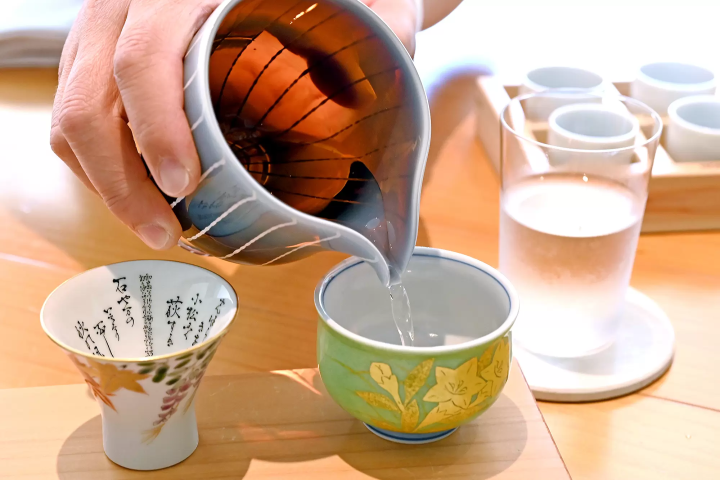How to Introduce Yourself in Japanese: 16 Useful Phrases

Here's a list of useful Japanese phrases, from self introductions for daily life, interviews, and school, to conversational phrases and expressions for travel!
Self-Introduction In Japanese

With a few Japanese greetings on hand, being in Japan will be more fun.
In this article, we have compiled a list of useful Japanese phrases that you can use, from basic self-introduction to phrases useful for daily communication.
Japanese Phrases to Introduce Yourself
1. Basic Self-Introduction
2. Learning More About Others
3. Getting To Know Each Other
4. Conversation Tips
5. 25 Useful Travel Phrases
6. Informal vs Formal Japanese
Basic Self-Introduction in Japanese

1. Nice to meet you!
[hazimemashite]
This phrase is used to greet someone you meet for the first time. Let's practice speaking in Japanese!
2. My name is ◯◯.
[watashino namaewa ◯◯des]
This phrase is used to introduce your name.
If you have a nickname, you say
"Please call me 〇〇."
[〇〇to yonde kudasai]
Example
My name is Tanaka Miki.
[watashino namaewa tanaka mikikodes]
Please call me Miki.
[mikito yonde kudasai]
3. I am from ◯◯.
[◯◯kara kimashita]
Insert the name of your country into 〇〇 to introduce where you are from to others.
Example
I am from America.
[amerikakara kimashita]
4. I am a ◯◯.
[watashiwa ◯◯des]
Insert your occupation, such as student (gakusei), company employee (kaishain), into 〇〇 when introducing your occupation to others.
Example
I am a student.
[watashiwa gakuseides]
I am a designer.
[watashiwa dezaina:des]
5. Nice to meet you! / Thank you for your time / Please keep me in mind
[yoroshiku onegai shimas]
This phrase is used at the end of self-introductions. It can also be used in various situations, like when asking for a favor and signing off an e-mail. It is a convenient phrase to express politeness.
6. How to introduce yourself in Japanese school
Alongside the above phrases its a good idea to mention after your occupation your Hobbies or Interests so your classmates get to know you quicker.
[shumi wa ◯◯ desu]
Insert your hobbies or interests into 〇〇.
Example:
My hobby is playing soccer.
[shumi wa sakkā desu]
7. How to introduce yourself in an interview ( jikushokukai)
When attending a job interview in Japan, or any formal professional setting, one of the first things you will likely be asked to do is give a self-introduction, known as jikushokukai (自己職会). This is an important opportunity to present yourself politely and confidently, highlighting your name, occupation or background, and your goals or interests. A well-prepared jikushokukai can create a positive first impression and set the tone for the rest of the interview. Follow the Jikushokukai (self introduction sample) below-
1. [watashiwa ◯◯ desu]
Insert your occupation or profession into 〇〇.
Example:
I am a teacher.
[watashiwa kyōshi desu]
2. [shigoto no okuni wa ◯◯ desu]
Insert the workplace or company into 〇〇.
Example:
I work at ABC Corporation.
[shigoto no okuni wa ABC kabushiki gaisha desu]
3. [shigoto ni tsuite ◯◯ to omoimasu]
Insert your role or specialty into 〇〇.
Example:
I am responsible for sales.
[shigoto ni tsuite urēgi to omoimasu]
3.[motto shōrai ni tsuite ◯◯ ga arimasu]
Express your future goals or plans.
Example:
I want to develop my skills further.
[motto shōrai ni tsuite ◯◯ ga arimasu]
4. [dōzo yoroshiku onegaishimasu]
End with this polite phrase.
Learning More About Others in Japanese

6. What is your name?
[onamaewa nandeska]
This phrase is used to ask for someone's name.
For example, someone with the name Tanaka Mikiko would reply,
"My name is Tanaka Mikiko."
[tanaka mikikodes]
"How should I address you?"
[nanto yobeba i:deska]
This phrase is used to ask someone's nickname.
For example, someone with the nickname Miki would reply,
"Please call me Miki."
[mikito yonde kudasai]
7. Where are you from?
[shusshinwa dokodeska]
This phrase is used to ask someone where he or she is from.
For example, a person from Kyoto, would reply
"I am from Kyoto."
[shusshinwa kyotodes]
This is the response that comes.
"I am from 〇〇."
[◯◯kara kimashita]
After saying where you are from, be sure to ask where your conversation partner is from!
8. What is your occupation?
[oshigotowa nandeska]
This phrase is used to ask someone about their occupation.
For example, a student would reply,
"I am a student."
[watashiwa gakuseides]
This phrase comes after introducing your occupation to others.
"I am a 〇〇."
[watashiwa ◯◯des]
Getting To Know Each Other in Japanese

9. I like 〇〇.
[watashiwa 〇〇ga skides]
This phrase is used to introduce your hobbies and preferences to others.
Example
I like sushi.
[watashiwa sushiga skides]
To further emphasize this expression, you say
"I like 〇〇 very much."
[watashiwa ◯◯ga daiskides]
Example
I like anime very much.
[watashiwa animega daiskides]
10. How about you?
[anatawa do:deska]
This phrase is used to learn more about the preferences and opinions of others.
11. I went to 〇〇.
[watashiwa 〇〇ni ikimashita]
This phrase is used to tell someone about the places you have been to visit.
This phrase is suitable for striking up a conversation with your Japanese friends, sharing with them about the different places you have visited in Japan.
Example
I went to Asakusa.
[watashiwa asakusani ikimashita]
12. Would you like to go to 〇〇 together?
[isshoni 〇〇ni ikimasenka]
Insert the name of the place into 〇〇.
Example
Would you like to go to the sushi restaurant together?
[isshoni sushiyani ikimasenka]
Would you like to visit Shinjuku together?
[isshoni shinjukuni ikimasenka]
13. Can I have your Facebook?
[feisubukku o oshiete kudasai]
You would like to keep in touch with your new Japanese friends after returning home. Use this phrase to connect with them on Facebook!
Japanese Conversation Tips

14. I see!
[he: so:nandesne]
These phrases are used to show the speaker that you are following the conversation and understand what they are saying.
In the event you do not understand the speaker, you say
"What does that mean?"
[sorewa do:iu imideska]
15. Cute!
[kawai:]
This phrase is used to compliment someone's attire or personal belongings. You can also use this phrase to describe things you find adorable.
16. Wow!
[sugoi]
This phrase is used when you see or hear something terrific.
"That was awesome!"
[sugokatta des]
This phrase can also be used to express your thoughts and opinions about something amazing.
Review
1.Nice to meet you!
[hazimemashite]
2. My name is ◯◯. Please call me ◯◯!
[watashino namaewa ◯◯des. ◯◯to yonde kudasai]
3. I am from ◯◯.
[◯◯kara kimashita]
4. I am a ◯◯.
[watashiwa ◯◯des]
5. Nice to meet you! / Please be kind to me! /Yours Sincerely / Thank you for your valuable time!
[yoroshiku onegai shimas]
6. What is your name?
[onamaewa nandeska]
7. Where are you from?
[shusshinwa dokodeska]
8. What is your occupation?
[oshigotowa nandeska]
9. I like 〇〇.
[watashiwa ◯◯ga skides]
10. What about you?
[anatawa do:deska]
11. I went to 〇〇.
[watashiwa ◯◯ni ikimashita]
12. Would you like to go to 〇〇 together?
[isshoni ◯◯ni ikimasenka]
13. Can I have your Facebook?
[feisubukku o oshiete kudasai]
14. I see.
[he: so:nandesne]
15. Cute!
[kawai:]
16. Wow!
[sugoi]
Review Quiz
Challenge yourself by answering the following two questions we have prepared, based on the phrases introduced in this article.
Please select the correct answer for the following multiple-choice questions. (Answers can be found at the end of this article)
Q1. Which phrase should you use to introduce your name to others?
1. isshoni ◯◯ni ikimasenka?
2. watashiwa ◯◯ga slides.
3. watashino namaewa ◯◯des.
Q2. Which phrase should you use to invite someone to go somewhere together?
1. yoroshiku onegai shimas.
2. isshoni ◯◯ni ikimasenka?
3. ◯◯kara kimashita.
25 Useful Travel Phrases:
Whether you need directions, want to order food, or ask for help, knowing some key expressions can make communication much easier. These phrases will help you navigate markets, restaurants, and everyday situations confidently and politely. Having these handy expressions at your fingertips will enhance your travel experience and create more opportunities to connect with locals.
1. Hello / Good afternoon [konnichiwa]
2. Thank you [arigatou]
3. Thank you very much [arigatou gozaimasu]
4. Excuse me / Sorry / Thank you [sumimasen]
5. Do you speak English? [Eigo o hanasemasu ka?]
6. Do you have an English menu? [Eigo no menyuu wa arimasu ka?]
7. Where is the restroom? [Toire wa doko desu ka?]
8. How much is this? [Kore wa ikura desu ka?]
9. Please help [Tasukete kudasai]
10. Where is the train station? [Eki wa doko desu ka?]
11. When is the next train? [Tsugi no densha wa nanji desu ka?]
12. I want to go to this address [Kono juusho ni ikitai desu]
13. Is there an English sign?[Eigo no annaibankan wa arimasu ka?]
14. There is a fire / Emergency[Kaji desu]
15. I want to see a doctor [Isha ni aitai desu]
16. Do I need a reservation? [Yoyaku wa hitsuyou desu ka?]
17. Do you accept cash? [Genkin wa tsukaemasu ka?]
18. Do you accept credit cards? [Kurejitto kaado wa tsukaemasu ka?]
19. I am lost [Maigo ni narimashita]
20. Can I take a picture? [Shashin o totte mo ii desu ka?]
21. This is delicious [Oishii desu]
22. Please speak more slowly [Yukkuri hanashite kudasai]
23. I don’t understand (Wakarimasen) / [Wakarimasen]
24. Goodbye (Sayounara)
25. Can you help me find this? [Kore o sagashite kuremasen ka?]
Informal vs Formal Japanese
In Japanese, the way you introduce yourself changes based on social context and your relationship with the listener.
Formal (Kōtei /Formal) is used in workplaces, with strangers, teachers, elders, or in official situations. Includes polite expressions such as to mōshimasu for "my name is," and dōzo yoroshiku onegaishimasu for "please treat me well."
Example:
Nice to meet you. My name is [Your Name]. I am from [Your Country or City]. Please treat me well.
(Hajimemashite. Watashi wa [Your Name] to mōshimasu. [Your Country or City] shusshin desu. Dōzo yoroshiku onegaishimasu.)
Informal (Futsū / Casual)
Used with friends, classmates, or people your age.
Shorter and more relaxed. For example:
Nice to meet you. I’m [Your Name]. Nice to meet you!
(Hajimemashite. [Your Name] desu. Yoroshiku!)
In Summary:
Kōtei (formal): Respectful, polite language, suitable for professional or respectful situations.
Futsū (informal): Casual, friendly language suitable for friends and peers.
Knowing when to use each style shows your respect and understanding of social norms.
Speak Japanese and make new friends in Japan!
By mastering the phrases introduced in this article, you are a step closer to striking a natural conversation with Japanese people. Feel free to put these phrases into practical use and make new friends during your next trip to Japan!
FAQ
Do you ever use someone's first name in Japan?
In Japan, the use of first names is less common in formal or professional settings. Instead, people often address each other using their family names with appropriate honorifics, such as "-san" attached, especially in initial interactions or in hierarchical relationships. It is more common to use first names in informal or casual environments, among close friends, or among individuals of similar status.
How do you call a Japanese name politely?
When addressing someone politely in Japan, especially in formal or professional settings, it is customary to use their family name followed by the honorific "-san." For instance, if someone's name is Taro Tanaka, you would address them as "Tanaka-san." Using honorific titles like "-san" demonstrates respect and is considered appropriate in most situations, especially when addressing someone for the first time or when there is a difference in status.
What is the Japanese term for self introduction?
The Japanese term for self-introduction is "jikoshoukai." This term encompasses the act of introducing oneself, often including information such as name, occupation, and other relevant personal details in social or formal settings.
Do you introduce yourself with your last name in Japan?
In Japan, it's customary to introduce yourself using your last name, particularly in more formal or professional settings. This practice is especially common when meeting someone for the first time or when addressing individuals in a hierarchical relationship.
However, if you are visiting Japan and/or interacting with Japanese individuals in a more casual setting, it is acceptable to introduce yourself with your first name, especially if it's easier to pronounce than your last name. Your Japanese friends will be happy if you allow them to call you by your first name.
Why do Japanese not use first names?
In Japan, the cultural norm of primarily using family names rather than first names reflects the country's emphasis on hierarchy, respect, and maintaining harmonious relationships. This practice has historical and cultural roots, and it helps reinforce social structure and etiquette. Every individual is seen as an entity that belongs to a family or community; this is why the family name usually comes first.
Read also
Answers to the Review Quiz:
Q1: 3 Q2: 2
大学3年生です。旅行している時と美味しいものを食べる時が一番幸せです。







































![[Shinjuku Nishiguchi HALC] About the d Point Campaign](https://resources.matcha-jp.com/resize/720x2000/2026/02/14-258714.webp)



